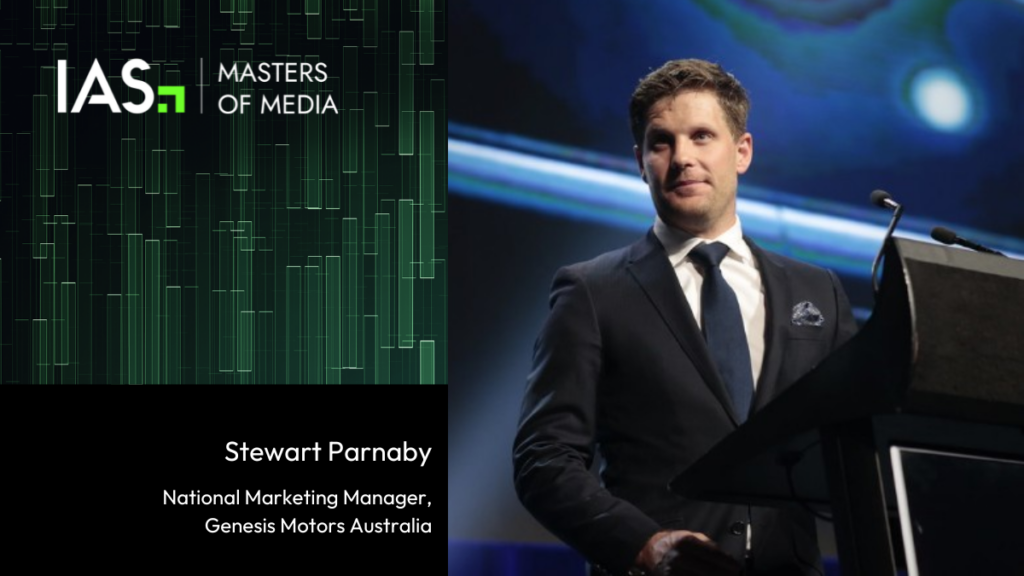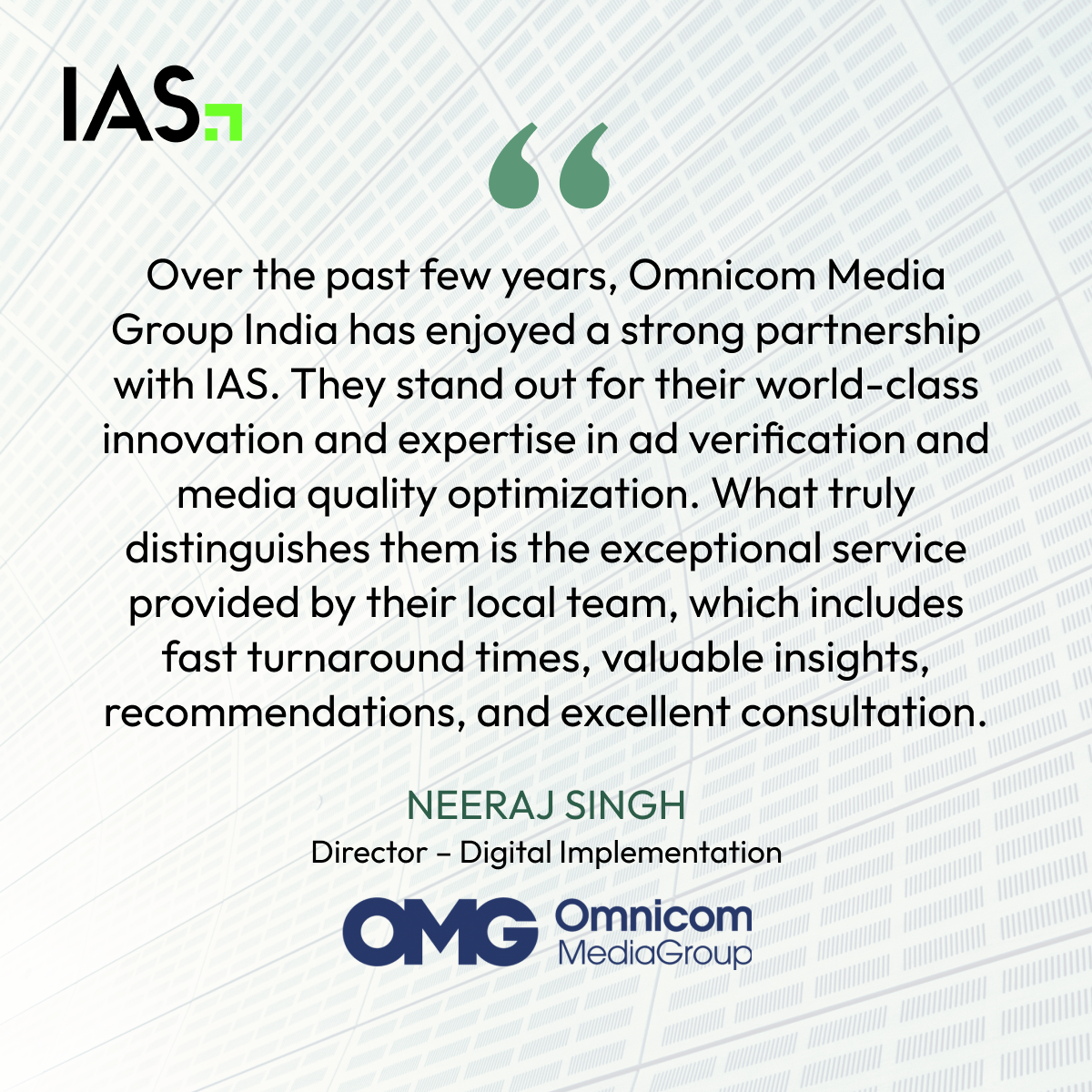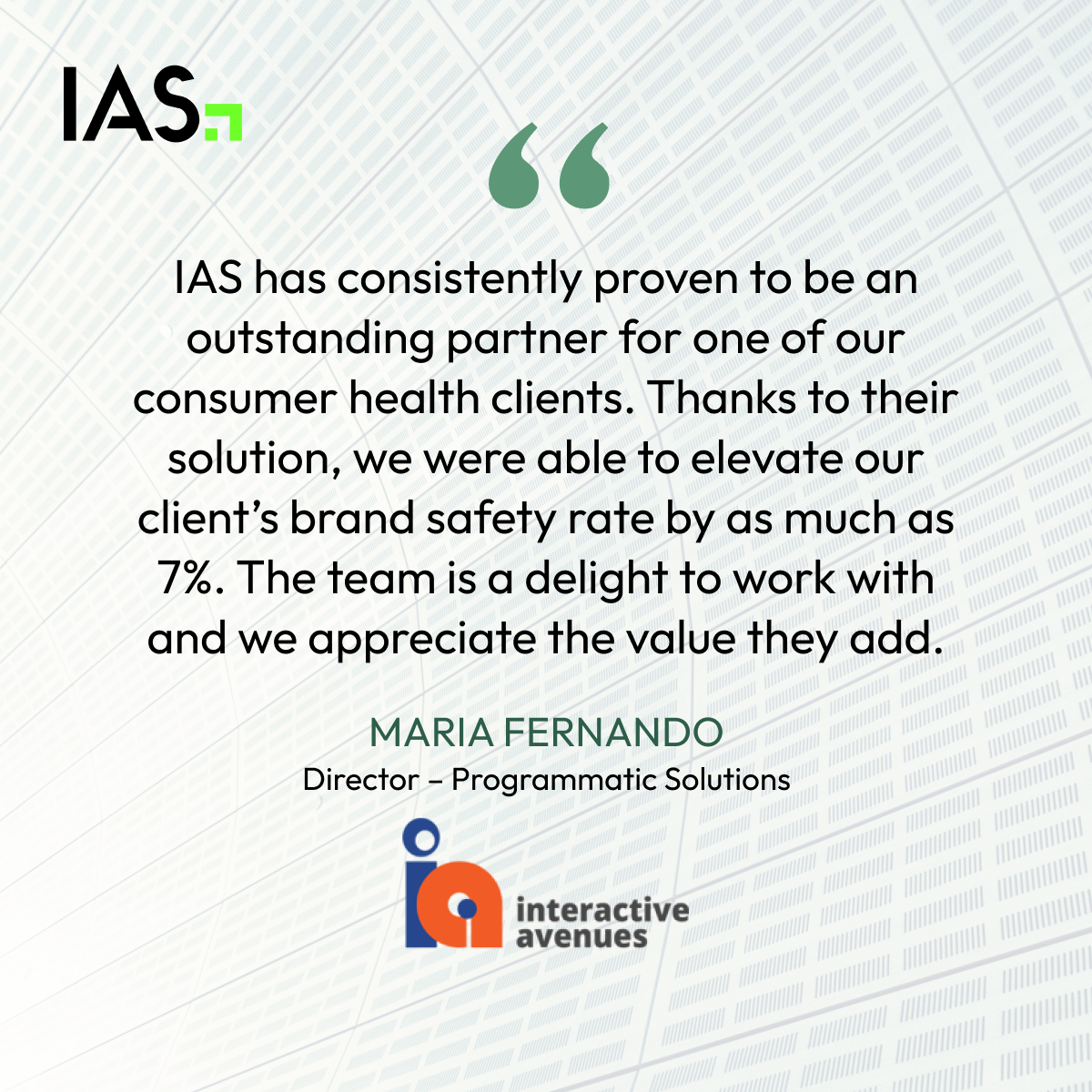
In this exclusive “Masters of Media” series, Integral Ad Science (IAS) speaks to the Movers and Shakers of the ANZ advertising industry, on all matters digital.
Stewart Parnaby is the National Marketing Manager for the luxury brand of Hyundai Motor Company, Genesis. Stewart is responsible for all elements of market planning and execution across a suite of channels and functions.
Integral Ad Science (IAS): Tell us about your professional journey Stewart
Stewart Parnaby (Stewart): It’s been a bit of a journey indeed. It started in creative agencies when digital was a thing we “had to start focusing on more” and then moved to client-side roles in various industries where the mantra became “isn’t everything actually digital in some way?” I think digital advertising now is in a really interesting space where it’s so much more than just ad units and clicks. It’s about providing critical data insights back to the business to be used in planning other areas. If a recent trend was, and still is, about proving your ROI, I believe the new ask of digital is increasingly about “what can you tell me (the business) is working and why”.
IAS: How has the COVID-19 impacted consumer behaviours and your industry at large?
Stewart: Well, big-ticket items are tough to buy in times of uncertainty, so the industry took a hit as it would in any economic downturn. But it’s bouncing back. The buying behaviour for us was a little more of an off/on than a true shift of behaviour due to the pandemic. Certainly, as with other industries, the major changes are about ensuring the physical distancing and sanitisation practices are integrated into standard operating procedures.
IAS: Any tips for marketers navigating the new normal?
Stewart: I don’t believe there is ever a “new normal”. We all know we are always evolving. Therefore, agility and flexibility are values that will hold anyone in good stead. But the most important thing is to know the ‘why’ behind any action. If you know the ‘why’ you can identify when that context has changed and therefore, so should your tactics. Many of us defend our choices and methods because they were right at the time but we should at least be willing to entertain the idea that there might be a better way today.
IAS: What are the key initiatives pertaining to digital media quality your company is prioritizing currently? E.g. ad fraud, viewability, brand suitability
Stewart: Well, I can’t speak explicitly on behalf of the company, however, my personal view skews towards the efficiency side of the conversation. I place great value on brand suitability. But when it comes to brand safety, I feel my partners and my tech stack have been protecting me for a long time. Therefore I’m focused on driving value out of every dollar spent by mitigating fraud, increasing viewability etc.
Since the dawn of digital everyone has had questions about where these millions of impressions and thousands of clicks come from. I think most marketing managers feel that uncertainty to varying degrees. Compared to simply being able to drive past the OOH I funded or see the logo on the shirts of the team I sponsor; you can’t always “see” digital. You merely trust a lot of systems, charts, and reports.
IAS: What is your opinion regarding the industry’s move from brand safety to brand suitability?
Stewart: As I mentioned, the need for brand safety is well known and established. So I believe progress was inevitable and the move to suitability is exactly that progress. The safety angle is hygiene, we all must do it, however, after a period of nothing going wrong, the attention starts to wane and people feel it can’t affect them. I’m my own example. Suitability, done right, provides a positive and mitigates a negative effect.
We have to consider what is the correct place for our media dollars and messages, refining out things we don’t want and attempting to hone in on the placements that make even more sense. The technology that powers this level of granularity provides so much control to the marketer but we are forced to think so much harder as a result. The right partners are always going to be key.
IAS: Genesis talks about mindful innovation, could you please elaborate on that?
Stewart: Something new is not by definition innovative. Something is innovative if it moves us forward; improves outcomes. I believe Genesis is offering an alternative to buyers in a very crowded space; but I believe we challenge the established norms about luxury cars; traditionally a large part of the purchase is to do with what a buyer thinks it will do for their external status. I believe Genesis offers more substance for those brave enough to follow their hearts when they fall in love with our vehicles.
IAS: What’s your favourite book/podcast/movie and why?
Stewart: Three genres normally pique my interest, sports, comedy or psychological thriller. Remember the Titans, The Blind Side; I also really enjoyed the movie “The Arrival”. The idea that learning a language fundamentally changes how we think was really interesting.
IAS: What is your advice to the fresh talent in the industry?
Stewart: Our industry is not a skill, it’s a discipline. The more the pressure builds over timelines, budgets, stakeholder priorities; the more corners get cut. The correct answers were developed a long time ago, only our tactics have evolved. The start of every project is supposed to hold the key to measuring the success of that project, it always starts with the desired outcome that fell out of a strategy.
At the end, ask yourself a simple question, was what I’ve done today the best approach to achieve that outcome?
Read more about our Masters of Media series. If you’d like to be featured or to speak with us, contact us today!
 Share on LinkedIn
Share on LinkedIn Share on X
Share on X

